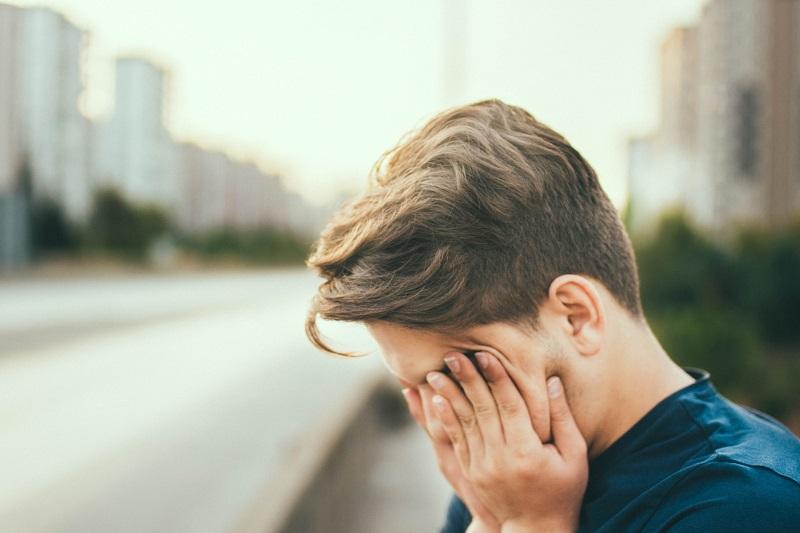Understanding Sleep Deprivation: Why You Might Be Feeling Drained
Nov 20, 2023 By Madison Evans
Getting a good night’s sleep is crucial for your overall health. But sometimes, life gets in the way, and you end up missing out on those much-needed hours. This is known as sleep deprivation. But what does it really mean for your body and mind?
What Is Sleep Deprivation?
Sleep deprivation occurs when you don't get enough sleep regularly or when the quality of your sleep is poor. This lack of proper rest affects both adults and children, impacting everyday activities, mood, and overall health.
Symptoms of Sleep Deprivation

It's essential to recognize the signs of sleep deprivation early to address them promptly. Some common symptoms include:
- Feeling tired all the time: Even after waking up, you feel like you haven't slept at all.
- Trouble concentrating: Tasks that were once easy seem challenging.
- Mood swings: Feeling irritable or experiencing sudden emotional outbursts.
- Forgetfulness: Forgetting basic things or tasks you have to do.
- Reduced reaction time: This can be especially dangerous while driving or operating machinery.
Causes of Sleep Deprivation
There are various reasons someone might not get enough sleep. Some of the most common causes include:
- Stress: Worries about work, family, or other issues can make it hard to relax and fall asleep.
- Environment: Noisy neighbors, an uncomfortable bed, or a room that's too hot or cold can all interfere with sleep.
- Health conditions: Some conditions, like insomnia or sleep apnea, can disrupt your sleep pattern.
- Lifestyle: Late-night partying, work, or even watching TV or using smartphones before bed can reduce sleep time.
Effects of Sleep Deprivation
Lack of sleep doesn't just make you feel tired; it has several effects on your body and mind:
- Physical Health: It can lead to weight gain, increased risk of heart disease, and weakened immunity.
- Mental Health: Sleep deprivation can increase the risk of mood disorders like depression and anxiety.
- Cognitive Abilities: It affects decision-making, creativity, and problem-solving skills.
Combatting Sleep Deprivation

Here are some straightforward steps to help you get a better night's sleep:
- Set a routine: Go to bed and wake up at the same time every day.
- Limit screen time: Turn off electronics at least an hour before bedtime.
- Make a comfortable environment: Ensure your bedroom is dark, quiet, and cool.
- Avoid caffeine: Stay away from caffeinated drinks in the evening.
Table: Quick Facts on Sleep Deprivation
Topic | Details |
Recommended Hours of Sleep | Adults: 7-9 hours, Teens: 8-10 hours, Children: 9-11 hours |
Common Causes | Stress, environment, health conditions, lifestyle choices |
Major Effects | Weight gain, mood disorders, reduced cognitive abilities |
Tips for Better Sleep | Set a routine, limit screen time, ensure a comfortable bedroom environment, avoid caffeine |
Conclusion
Sleep deprivation is more than just feeling drowsy. It impacts every part of our lives, from our emotions to our physical health. By understanding its symptoms, causes, and effects, we can take steps to ensure a good night's sleep and better overall health.
FAQs on Sleep Deprivation: Symptoms, Causes, and Effects
What is sleep deprivation?
Sleep deprivation happens when you don't get enough sleep consistently or when the quality of your sleep isn't good.
How do I know if I'm sleep-deprived?
Common signs of sleep deprivation include feeling tired all the time, having trouble focusing, experiencing mood swings, and being forgetful.
Why am I not getting enough sleep?
Many factors can cause sleep deprivation, such as stress, an uncomfortable sleeping environment, health conditions like insomnia, or lifestyle choices like late-night screen time.
Are there serious effects of not sleeping enough?
Yes, chronic sleep deprivation can lead to weight gain, a higher risk of heart diseases, mood disorders, and reduced thinking abilities.
How much sleep should I aim for?
Adults should aim for 7-9 hours, teens for 8-10 hours, and children for 9-11 hours.
What can I do to sleep better at night?
Try setting a consistent sleep schedule, limiting screen time before bed, making your bedroom comfortable, and avoiding caffeine in the evening.
Is using my phone before bed really that bad?
Yes, the blue light from screens can interfere with the production of the sleep hormone melatonin, making it harder for you to fall asleep.
Does sleep deprivation impact children differently than adults?
While many effects are similar, children might experience more behavioral issues and learning difficulties when they don't get enough sleep.
-
 Condition Nov 20, 2023
Condition Nov 20, 20238 Natural Ways to Relieve Stress: An Ultimate Guide
Look into natural ways to relieve stress that work. Improve your sleep and exercise in your daily routine for a balanced life
-
 Condition Oct 10, 2023
Condition Oct 10, 2023Folic Acid: A Complete Guide
We'll explain this essential nutrient's dosage, its importance in pregnancy, and its benefits for men. Read on to understand this essential vitamin.
-
 Fitness Jan 08, 2024
Fitness Jan 08, 2024The Role and Importance of Physical Therapy in Healthcare
Explore the benefits of physical therapy, learn how to get started, and understand the vital role of physical therapists in healthcare
-
 Food Nov 08, 2023
Food Nov 08, 2023Top 15 Fruits to Beat the Heat This Summer
Discover our top 15 summer fruits for beating the heat. Learn about their unique nutritional benefits and how they can keep you refreshed and healthy.
